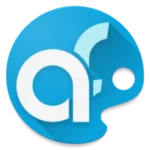Introduction to the Notion App
In today’s fast-paced digital world, finding the right productivity tools can make a significant difference in managing tasks, projects, and team collaboration. Furthermore, the Notion app has emerged as one of the most versatile and powerful applications available, catering to both personal and professional use. With its ability to seamlessly integrate note-taking, project management, databases, and knowledge-sharing, Notion has become a game-changer for individuals, teams, and businesses alike.
In this comprehensive review, we’ll dive deep into Notion’s features, explore how it enhances productivity, and evaluate whether it’s the right tool for you in 2024.
What is the Notion App?
Notion is an all-in-one workspace that combines several tools into one cohesive platform. Launched in 2016, it offers features for:
- Note-taking: Organize ideas, research, and notes in customizable templates.
- Project management: Plan, track, and manage projects using kanban boards, timelines, and calendars.
- Task management: Assign tasks, set deadlines, and monitor progress for individuals or teams.
- Databases: Store and retrieve information in a structured format, complete with filters and sorting features.
- Collaboration: Share pages, tasks, and information with team members in real-time, making it ideal for remote or hybrid work environments.
Notion is available on multiple platforms, including desktop (Windows and macOS), mobile (iOS and Android), and a web-based version, ensuring flexibility across different devices.
Key Features of Notion
1. Intuitive Note-Taking and Documentation
Notion allows you to create rich, multimedia documents. Whether you’re taking quick notes or crafting a comprehensive project brief, Notion’s clean interface and flexible layout options make it easy to structure information. You can embed images, videos, and code snippets directly into your notes.
- Templates: Start quickly with pre-designed templates for notes, meeting agendas, wikis, and more.
- Customizable layouts: Arrange text, images, and databases however you like.
- Nested pages: Organize pages within pages for hierarchical note-taking and easy navigation.
2. Advanced Task and Project Management
Unlike traditional to-do lists or project management apps, Notion provides dynamic options for organizing and tracking tasks. You can use kanban boards, calendars, or even Gantt charts to visualize progress.
- Drag-and-drop interface: Easily move tasks between lists or reorder priorities.
- Task assignment: Delegate responsibilities within a shared workspace.
- Due dates and reminders: Set deadlines and receive notifications to stay on track.
3. Databases and Tables
One of Notion’s standout features is its database functionality. Databases can be used for anything—from managing inventory to tracking clients or maintaining a personal reading list. Databases can also be linked across pages, offering a high degree of customization and interactivity.
- Relational databases: Connect different tables to create complex workflows.
- Filters and sorting: Customize how data is displayed and interacted with.
- Multiple views: Visualize your data as a list, gallery, timeline, or table.
4. Collaboration Tools for Teams
Notion excels as a collaborative tool, enabling team members to work together on shared documents in real time. From co-authoring meeting notes to working on projects, Notion brings everyone onto the same page.
- Real-time editing: See updates and changes made by collaborators instantly.
- Commenting and mentions: Add feedback or alert team members using @mentions.
- Permissions and sharing: Control who can view or edit specific pages.
How Notion Boosts Personal Productivity
1. Centralized Workspace
Notion eliminates the need for juggling between different apps for different tasks. By consolidating note-taking, task management, and knowledge organization in one place, it helps you stay focused and avoid the distractions of switching contexts.
2. Customization for Your Workflow
The flexibility of Notion allows you to create a workspace that suits your unique workflow. Moreover, you can customize pages with different blocks (text, tables, images) or use templates to streamline processes like weekly planning, goal tracking, or journaling.
3. Integrations with Other Apps
While Notion covers many functions within its platform, it also integrates with other popular tools to extend its utility. So, connect Notion with Google Drive, Slack, and Trello to improve workflows or use APIs to automate repetitive tasks.
Notion for Teams and Businesses
For businesses, Notion can serve as a comprehensive knowledge management tool and project management solution. Moreover, its collaborative features make it ideal for team environments, especially those operating remotely or across different time zones.
1. Team Wikis and Knowledge Sharing
Notion allows teams to create a centralized knowledge base. Whether it’s company policies, project documentation, or product roadmaps, having everything in one place ensures that team members can access up-to-date information when they need it.
2. Project and Task Management
Teams can track project progress using kanban boards, timelines, and calendars. However, by assigning tasks, adding deadlines, and monitoring completion rates, managers can have a clear overview of ongoing projects without the need for constant meetings or check-ins.
- Dashboards: Create project dashboards to monitor key metrics and milestones.
- Custom workflows: Adapt Notion’s databases and templates to match the team’s workflow.
- Collaboration in real-time: With instant syncing, team members can collaborate seamlessly, no matter where they’re located.
3. Client and Stakeholder Communication
Notion can also be used for client-facing purposes. However, you can share specific pages with clients, allowing them to view project updates, timelines, and deliverables without requiring them to have full access to the entire workspace.
Notion App Pricing Plans
Notion offers a range of pricing plans to cater to individual users and teams of all sizes:
- Free Plan: Ideal for personal use with unlimited pages and blocks, but limited to 5 MB file uploads.
- Personal Pro: $4/month, offering unlimited file uploads and access to version history for 30 days.
- Team Plan: $8/month per user, designed for collaborative workspaces with unlimited team members and advanced permissions.
- Enterprise Plan: Tailored pricing for large organizations with advanced security features and priority support.
Each plan provides access to all core features, with higher tiers unlocking more advanced capabilities suited for businesses.
Pros and Cons of Notion
Pros
- Versatility: Combines several productivity tools in one app, reducing the need for multiple platforms.
- Customization: Highly flexible, allowing users to tailor their workspaces to specific needs.
- Collaboration: Excellent real-time collaboration features for teams.
- Cross-platform availability: Available on desktop, mobile, and web.
Cons
- Steep learning curve: Notion’s flexibility can be overwhelming for new users, requiring time to learn.
- Limited offline access: While Notion offers some offline functionality, it’s not as robust as other apps.
- File size restrictions: The free plan limits file uploads to 5 MB, which might be restrictive for some users.
Alternatives to Notion
While Notion is a powerful app, it may not be the best fit for everyone. Here are some alternatives that offer similar features:
1. Evernote
Evernote remains one of the most popular note-taking apps, especially for users who prefer a more straightforward, document-focused experience.
2. Trello
For teams focused primarily on project management, Trello’s kanban-based system offers an intuitive way to track tasks and progress.
3. Asana
Asana is another strong alternative for project management, offering robust task-tracking features without the need for the extensive customization that Notion requires.
Conclusion
Finally, the Notion app is a versatile and comprehensive tool for both individuals and teams, offering everything from note-taking to project management and databases. Its wide range of features makes it suitable for various use cases, whether you’re looking to boost personal productivity or improve team collaboration. While there is a learning curve, the benefits of having an all-in-one workspace are well worth the effort, especially in 2024 as more people and organizations move towards remote or hybrid work environments.









